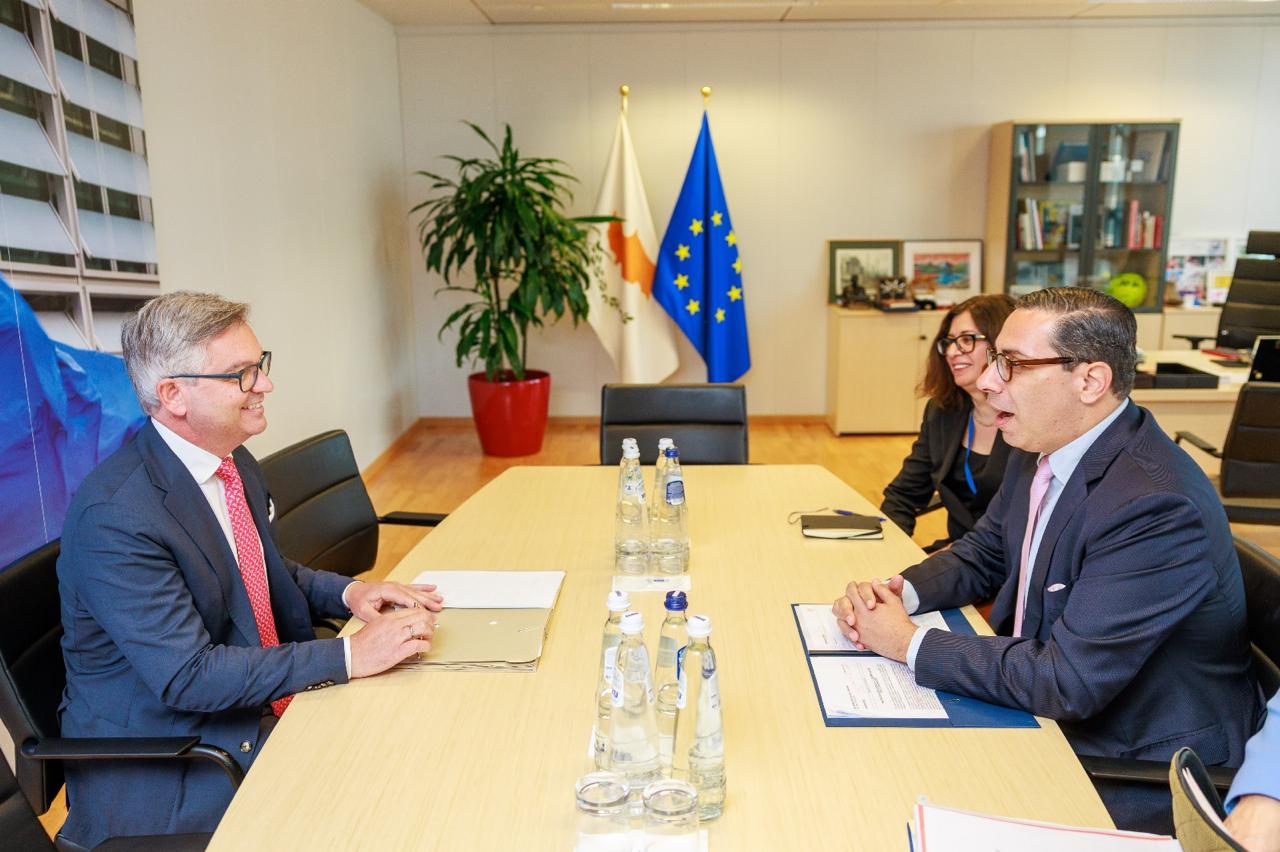Foreign Minister Constantinos Kombos on Monday spoke to European commissioner for internal affairs Magnus Brunner about the matter of Cyprus’ planned accession to the Schengen zone.
“We discussed Cyprus’ progress on all Schengen recommendations, with the support and guidance of the commission. The full integration of Cyprus into the Schengen zone will complete the security of the European Union and strengthen its strategic prospects,” Kombos wrote in a social media post after the meeting.
The meeting comes after President Nikos Christodoulides had said earlier in the month that Cyprus will join the Schengen zone as early as next year.
“We will join the Schengen zone in 2026. A huge effort is being made by the end of 2025 from a technical point of view. This is our goal, we will have completed everything we need to do as a state, with the aim of 2026, precisely, for the Republic of Cyprus to join the Schengen zone,” he said.
He added that such a decision will be “a strategic decision, a development, for both the Republic of Cyprus and the European Union”.
“I assure you that by the end of 2025, we will complete all the technicalities we need to ensure that our country will be in the Schengen zone in 2026.”
Cyprus is one of just two EU member states left outside the Schengen zone, following the accession of Bulgaria and Romania at the beginning of this year. Cyprus aside, Ireland is the only EU member outside the Schengen zone. Four non-EU members – Iceland, Liechtenstein, Norway, and Switzerland – are also Schengen members.
Reports earlier in the year set out the likely requirements Cyprus must fulfil to be able to join the Schengen zone, with the country said to have been tasked with “strengthening [its] border controls”.
Particular attention on this front has been paid to the Green Line, which, while not de jure an external border, is said to “require strict controls” and is not exempt from EU frontier standards.
Cyprus is said to also be required to “strengthen its consular presence internationally”, through further representation and cooperation agreements with other states and “external providers”.
Another important step towards Schengen zone membership is he application of the Schengen acquis on visas and migrant returns.
Kombos had said last month that Cyprus has been implementing the core of the Schengen visa code acquis since joining the European Union in 2004.
Meanwhile, on the matter of migrant returns, a total of 10,098 irregular migrants returned to their country of origin during 2024, according to the police.
Cyprus’ success in repatriating irregular migrants to their countries of origin has caught the eye of the European Union, with European Commission President Ursula von der Leyen saying the country has “made good progress” on the matter during a visit to Paphos in October.
Her words echoed those of former European Commission vice president for promoting the European way of life Margaritis Schinas, who had last year described Cyprus as an “emerging European champion of migrant returns”.
Should all the technical requirements be fulfilled, the final step towards joining the Schengen zone will be a final evaluation and political approval.
The European Commission will undertake a final assessment of Cyprus’ suitability, with accession requiring unanimous approval by all the Schengen zone’s current 29 member states.
Kombos also met with Cypriot MEPs on Monday to brief them on the progress of Cyprus’ bid for full accession to the Schengen Area.
In a post on his personal account on X, Kombos described the meeting as “another productive exchange” with Cyprus’ MEPs.
He added that the discussion also included preparations for the upcoming Presidency of the EU Council, which Cyprus will assume in the first half of 2026.






Click here to change your cookie preferences